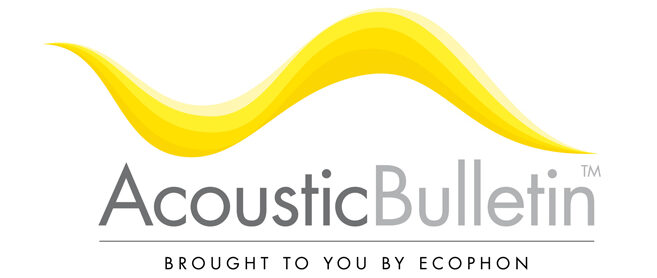RAs reported in Ecophon Acoustic Bulletin (November 3, 2008) screening of primary school pupils’ hearing wasn’t a research program only. One of the main tasks was to build awareness toward hearing protection and noise control. A short guide for children, parents ,and teachers has been prepared, with advice how to protect hearing and how to find the first signs of problems. Polish readers can have a look at the original text here. Less fluent in Polish can click the link below for English translation.
1. Avoid noise – unwanted sound that can be harmful ftoyour health. Noise is a cause of irritation and tiredness, headache and sleeplessness. That has a negative impact on your efficiency at school and work. High-level noise can destroy your hearing but also may drive you to heart diseases, stomach ulcers,and neurosis.
2. Listen to silent and moderated sounds that are similar in their level to natural ones. Sounds that are pleasant and not causing tiredness, irritation, headache, and tinnitus (constant noise in ears, heard in silence). Don’t follow your reckless colleagues feeding themselves with cacophony.
3. Save your ears. Listen to the music using loudspeakers rather than earphones. Adjust the volume of the music to a safe level – you should be able to understand somebody talking to you when the music is on.
4. Save your ears and the whole organism. Listen to the music using fa ull frequency band. Low-frequency(bass) loud music and vibrations affects negatively our hearing apparatus but also our psyche, emotions, and internal secretions driving serious psychosomatic malfunctions.
5. Loud club or disco noise causes, in the beginning, so-called hearing temporary threshold shift. That means temporary partial hearing loss as a noise exposure effect. After a certain time of recovery, normal hearing sensitivity returns. The depth and duration of that effect depends on noise level and exposition time. If exposition to high noise is regular, the second stage is tinnitus – constant noise (whistle) heard in ears in silence. Finally, frequent noise expositions repeated for a certain time drive to PTS: permanent threshold shift – irreversible hearing loss.
6. Playing with petards and fireworks, and shooting firearms without earplugs leads to deafness. Using fireworks etc., you have to remember, that it can be more harmful to an accompanying person, that to you yourself. A person that launch firework is, more or less, prepared for an explosion – both mentally and physically (he can simply plug his ears in the right moment). Somebody not warned, standing close to you could be shocked by a sudden burst. Also, don’t shout directly to someone’s ear and don’t use for a similar purpose any music instruments (trumpet for instance).
7. If involved in a fight – protect your head. Head injuries often cause hearing loss. A flat palm hit to the ear can cause an ear-drum membrane perforation.
8. Hygiene. Wash your ears with soap and water and dry them with a towel. Don’t put any items into the external auditory canal. Cosmetic buds are not for ears! When you use them to “clean” your ear, you are destroying the natural mechanism of self-cleaning, and just part of ear wax is removed. The rest is pushed to the end of auditory canal like powder in canon barrel. That result in building wax plug that has to be removed by laryngologist. By putting cosmetic sticks into ear, you can also easily damage your ear-drum.
9. Visit laryngologist when you hear whistling or other constant sound in perfect silence, when you have difficulties with understanding teacher, when you are the only person in your group/family that tends to watch TV louder, when you suffer pain while being exposed to noise.
10. Frequent, returning upper airways infections, otitis (ear infection), allergies, snoring, tonsillitis (tonsil infection) should be a subject of medical consultations with laryngologist.
11. If you have problems with writing from listening, with reading, with concentration – visit specialist and ask for hearing examination.

